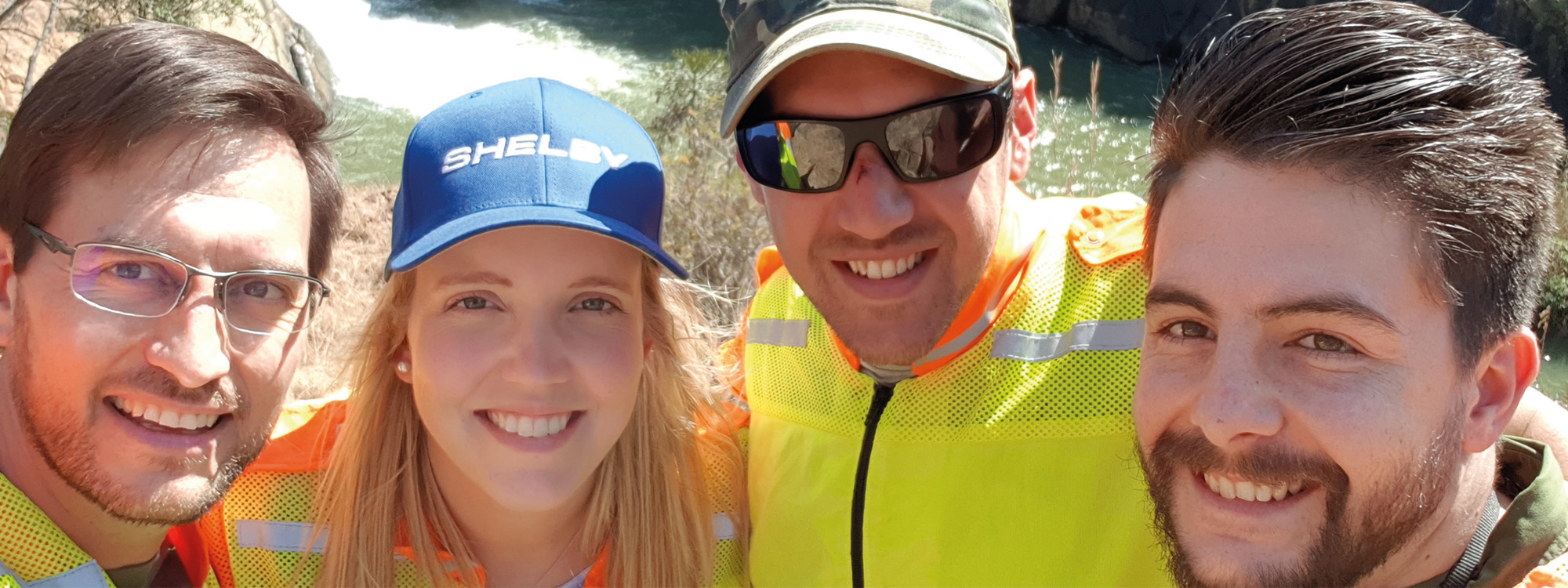
I was honored to present at the event and I took the opportunity to refer to Coca-Cola’s former CEO Bryan Dyson’s well-known Five Balls of Life speech, in which he focuses on the priorities of life using the metaphor of juggling five balls.
He calls them work, family, friends, health and spirit.
Work is a rubber ball – if you drop it, it will bounce back.
The other four balls are made of glass – if you drop them they break and shatter to pieces.
Can positivity alone protect the glass ball?
In today’s fast-paced science and engineering environment, the ability to achieve work-life balance is becoming more and more difficult. Employers expect more and we are increasingly putting additional pressure on ourselves to achieve greater results.
We must wear multiple hats in the office and it’s no secret that one of the top ten sought-after skills in today’s workplace is a positive attitude.
It is said that positivity is contagious and others will sit up and take note.
But staying positive is easier said than done when your plate is filled to the brim and you feel completely overwhelmed with all you must fit in between work and home.
We are not Wonder Women
Saying ‘yes’ too often will suck you into a negative spiral. You will, likely, reduce your job satisfaction, quality of performance and productivity. To always say ‘yes’ may make you seem like an eager team player, but saying ‘no’ may in the long run prove to be much more advantageous to your career.
If our careers were the only component in life, we would all be able to tick the box. After all, we build bridges, produce coal, design roads, etc.
But there are other aspects of our lives where we are expected to cook like Siba, parent like Nanny McFee, work like Maria Ramos and look like Tyra Banks. These expectations are likely to have an impact on any person’s attitude.
It makes sense that people grow personally and become highly productive in a climate that is conducive to personal and professional development.
Employers spend huge amounts of money on teaching new information and upgrading skills through training.
Unfortunately, many organisations neglect the most important area of personal growth – the goals, attitudes and motivational factors of staff.
We can’t always push the boundaries
You may think that by being the reliable boundary pusher, the yes-lady of the office, you are setting yourself up for success, but in fact you are setting yourself up for failure. Nobody can work 24/7 indefinitely. The result will be eventual burnout.
Advice I have read suggests we need to set fair and realistic limits on what we will and will not do, both at work and at home.
How to find success in work and life
It is without a doubt intimidating to thrive in a male-dominated environment. However, the approaches that women take are completely different – we draw solutions from different avenues. Networking opportunities, like the Women in Engineering Convention, are great ways to exchange ideas on how to keep a balance when faced with these career difficulties.
Part of being women within the fast-paced world of science and engineering is keeping in touch with our instinct of caring and uplifting the world around us. It links back to Bryan Dyson’s juggling act which I referred to in the beginning, more specifically the ball called “spirit”.
Managing time effectively
The idea of placing work and life in separate boxes creates an unhealthy divide in our lives. The popular saying, “If you love what you do for a living, then it shouldn’t be considered work,” isn’t entirely true.
The bottom line is – we need to earn money to live.
We have so many tools and resources at our fingertips to manage time. We have software programs to analyse the time spent on our computers, day planners to manage our busy schedules, and sometimes assistants to handle the work we just don’t have time for. Even with all these tools, do we get everything done in a day that needs to get done?
When was the last time you got to sleep feeling satisfied with the work that you’ve done, including the non-work-related activities that you needed to do? It is this feeling of constant self-dissatisfaction that creates the continued work-life and time management imbalance issues so prevalent in our lives.
Time management and prioritising work and life to achieve that healthy balance come from within.
We all differ in our views and needs of what must take priority in our lives. What remains constant is whether you go to bed at night feeling satisfied or not – and this is entirely up to you. How well will you sleep tonight?
Emotional intelligence, poise and control
Per Bruno Neal, “We have paid a drastic price – not only in our organisations, but in our own lives – for trying to disconnect emotions from intellect.”
People experience an average of 27 emotions every waking hour. Rather than ignoring these feelings, the goal should be to move towards them and to work through them, especially in the fast-paced world of science and engineering.
My advice is – walk away, count to ten and breathe. Research on how the brain works revealed a collection of mental shortcuts we use in making decisions.
These tools are used daily, yet typically they remain invisible to the user – they can be thought of as mental blind spots. Even with strong emotional intelligence you need to watch out for these.
Especially watch out for the following ones: blind ambition, unrealistic goal setting, driving others, being power hungry and an insatiable need for recognition. Although these blind spots cannot be completely avoided, we should become more aware of their influence in our daily decision making processes.
Empowering organisations to improve women’s representation
At the end of the day, actions speak loader than words. We need to advance our representation in the industry. When you look at female co-workers, what do you see – just another female engineer, or a sisterhood representing women in science and engineering?
In the words of Bryan Dyson, “You live in a world of growing opportunity at one of the most exciting times in history, and you have been prepared with an exceptionally fine education. Because you are so well educated, let me pose this final question to you. What is education for?
Is it for the pursuit of knowledge or the pursuit of significance?
How you answer makes a difference. Knowledge is merely a tool. There is someone in Argentina or Singapore who has the same degree as you. The difference lies in how you use it. Will you use your education for life or just as a living? It’s up to you now.
Related
insights
 Women in Urban Design lead the way
Women in Urban Design lead the way
I am pleased to report that I have just been selected for the UDIA Women in Property Committee for the 2018-2020 season.
 IWD2022: Women at SMEC shine bright
IWD2022: Women at SMEC shine bright
Seven inspiring and influential women who work at SMEC, Logashri Sewnarian, Libby Paholski, Pawitasari Fransisca, Florence Wambugu, Raveena Grover (pictured), Karina Discaya and Saima Bodla, champion International Women’s Day 2022.
 What advice would you give your younger self? SMEC’s women in engineering reflect on their career journeys
What advice would you give your younger self? SMEC’s women in engineering reflect on their career journeys
Reflecting on Women’s Month in South Africa, SMEC South Africa celebrates their very own women in engineering - inspiring females who are not only transforming our built environment but leading the way for the next generation of female engineers.





